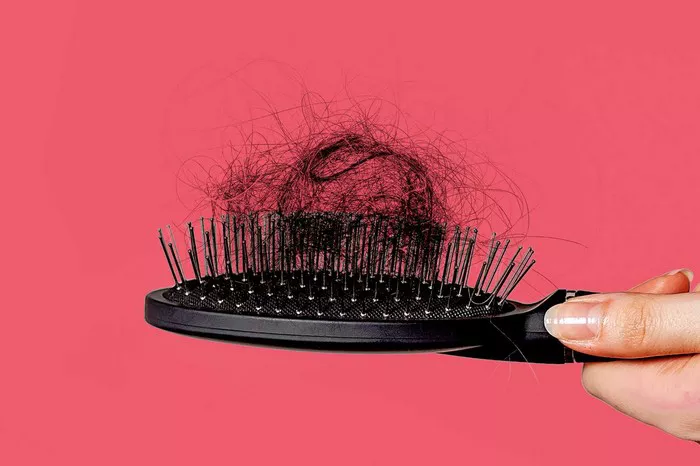Menopause is a significant transitional phase in a woman’s life, marked by hormonal fluctuations and various physiological changes. Among these changes, hair loss is a common concern for many women experiencing menopause. But how much hair loss is normal during this stage of life? In this article, we explore the impact of menopause on hair health, examine the factors contributing to hair loss, and provide guidance on what women can expect during this transition.
Understanding Menopause and Hair Loss
Before delving into the specifics of hair loss during menopause, it’s essential to understand what menopause is and its effects on the body:
Menopause Transition: Menopause is a natural biological process that marks the end of a woman’s reproductive years. It typically occurs between the ages of 45 and 55, although the exact timing varies for each individual.
Hormonal Changes: During menopause, the ovaries gradually decrease their production of estrogen and progesterone, leading to hormonal fluctuations and eventual cessation of menstruation. These hormonal changes can affect various aspects of health, including hair growth and texture.
Effects on Hair: Hormonal fluctuations during menopause can impact the hair growth cycle, leading to changes in hair density, texture, and quality. While some women may experience increased hair shedding, others may notice thinning or balding in certain areas of the scalp.
How Much Hair Loss Is Normal During Menopause?
Hair loss during menopause is considered normal to some extent due to hormonal changes and aging. However, the degree of hair loss can vary widely among individuals. Here are some key points to consider:
Increased Shedding: It’s normal for women to experience increased shedding of hair during menopause, typically characterized by more hair falling out during washing, brushing, or styling. This shedding is often temporary and may resolve on its own over time.
Thinning Hair: Some women may notice that their hair appears thinner or less dense during menopause. This can be attributed to changes in the hair growth cycle, hormonal imbalances, and decreased estrogen levels, which can affect the size and activity of hair follicles.
Balding or Receding Hairline: While less common, some women may experience more pronounced hair loss, including balding or a receding hairline, during menopause. This type of hair loss is often associated with genetic factors, hormonal imbalances, and other underlying health conditions.
Pattern Hair Loss: Female pattern hair loss, also known as androgenetic alopecia, can occur during and after menopause. This type of hair loss is characterized by a gradual thinning of hair on the top of the scalp, similar to male pattern baldness, and is influenced by genetic predisposition and hormonal factors.
Factors Contributing to Hair Loss During Menopause
Several factors can contribute to hair loss during menopause:
Hormonal Changes: Declining estrogen levels and fluctuations in other hormones such as testosterone and DHT can affect the hair growth cycle and lead to hair loss.
Genetics: Genetic predisposition plays a significant role in determining an individual’s susceptibility to hair loss, including female pattern baldness.
Age: Aging itself can contribute to hair thinning and loss, as the hair growth cycle slows down and hair follicles become less active.
Stress: Chronic stress can exacerbate hair loss during menopause by triggering hormonal imbalances and inflammatory responses in the body.
Nutritional Deficiencies: Inadequate intake of essential nutrients such as vitamins, minerals, and protein can compromise hair health and contribute to hair loss.
Managing Hair Loss During Menopause
While some degree of hair loss during menopause is normal, there are steps women can take to manage and minimize its impact:
Healthy Lifestyle: Adopting a balanced diet, regular exercise routine, and stress management techniques can support overall health and hair growth during menopause.
Hair Care Practices: Gentle hair care practices, such as using mild shampoos, avoiding excessive heat styling, and minimizing tight hairstyles, can help reduce hair damage and breakage.
Scalp Health: Maintaining a healthy scalp environment through regular cleansing, massage, and scalp treatments can promote optimal hair growth and minimize hair loss.
Supplements: Some women may benefit from taking supplements specifically designed to support hair health, such as biotin, vitamins, and minerals.
Medical Interventions: In cases of severe or persistent hair loss, women may consider seeking medical evaluation and treatment options, such as hormone replacement therapy, minoxidil (Rogaine), or platelet-rich plasma (PRP) therapy.
Conclusion
In conclusion, while some degree of hair loss is normal during menopause due to hormonal changes and aging, the extent and pattern of hair loss can vary among individuals. Understanding the factors contributing to hair loss during menopause and implementing strategies to support hair health can help women navigate this transitional phase with confidence. By adopting a holistic approach to health, including proper nutrition, stress management, and appropriate hair care practices, women can minimize the impact of hair loss and maintain healthy, vibrant hair throughout menopause and beyond.
Does High Cortisol Cause Hair Loss

